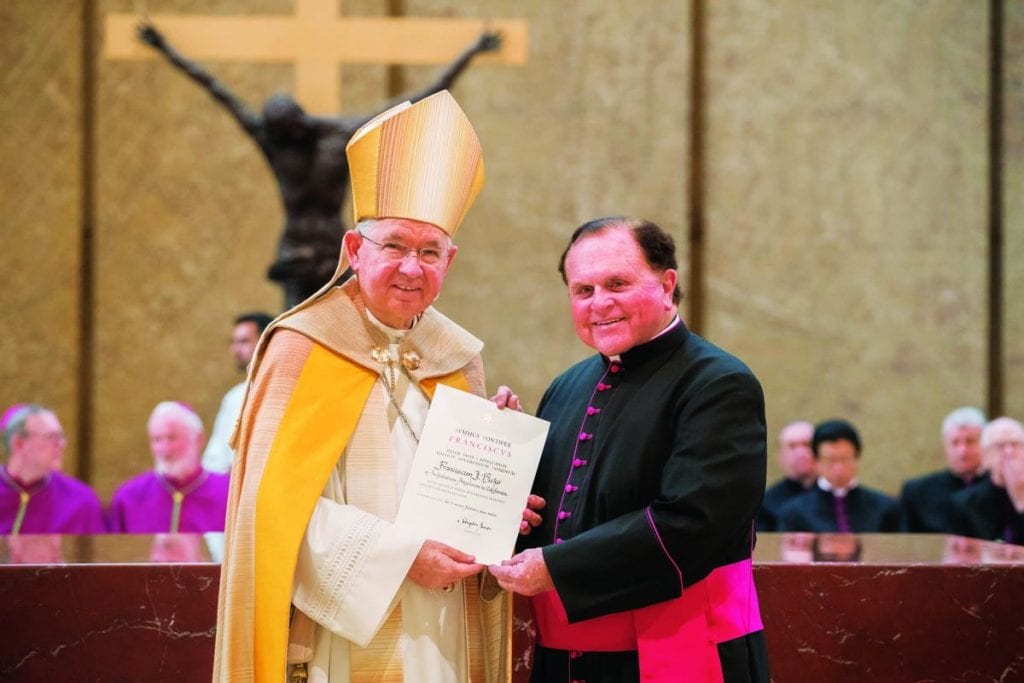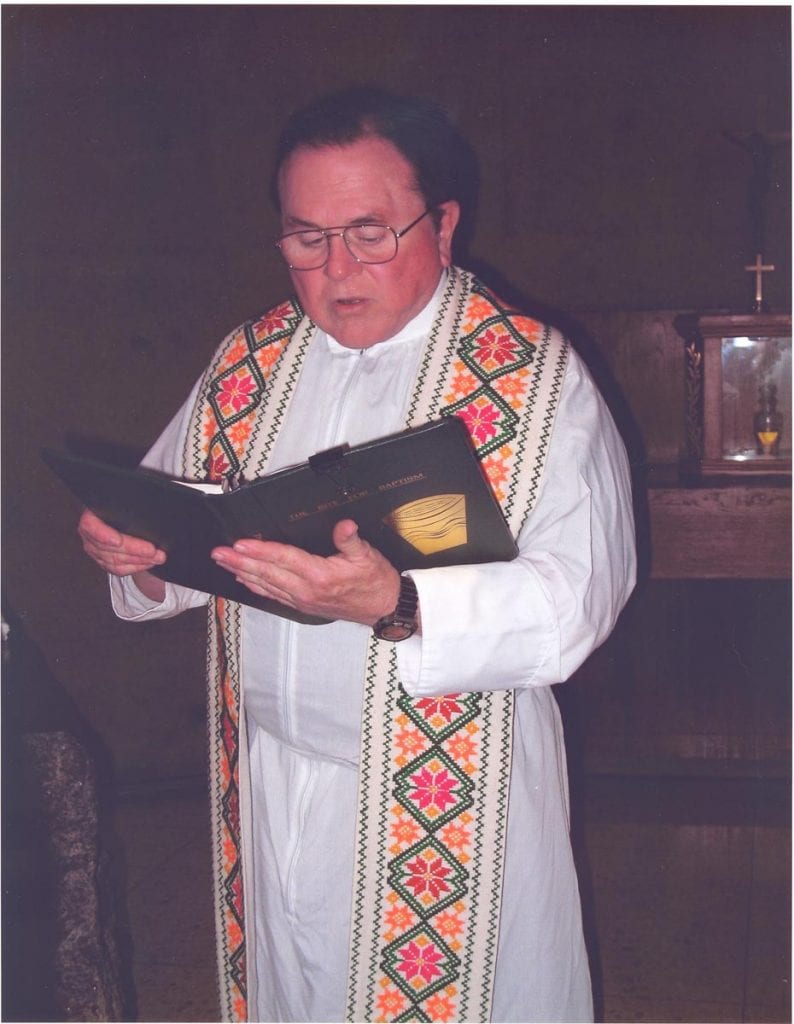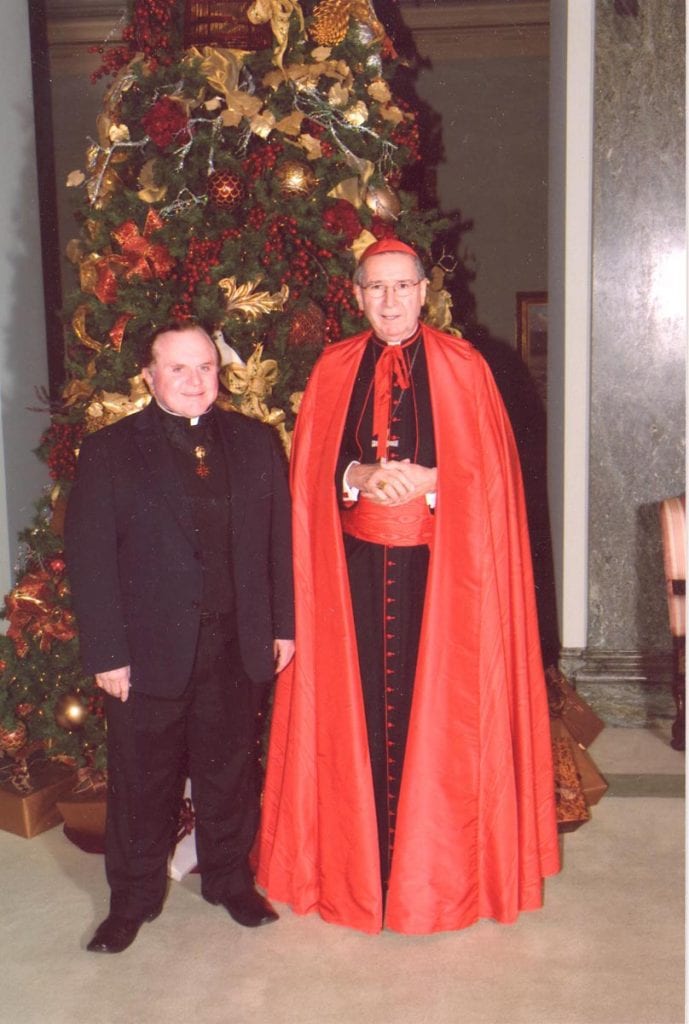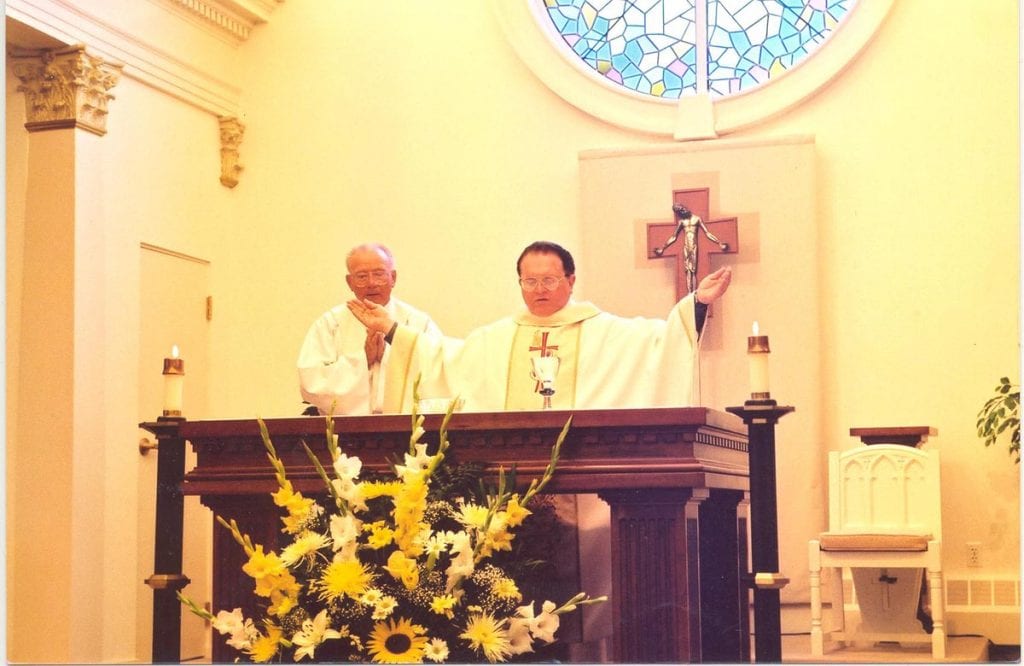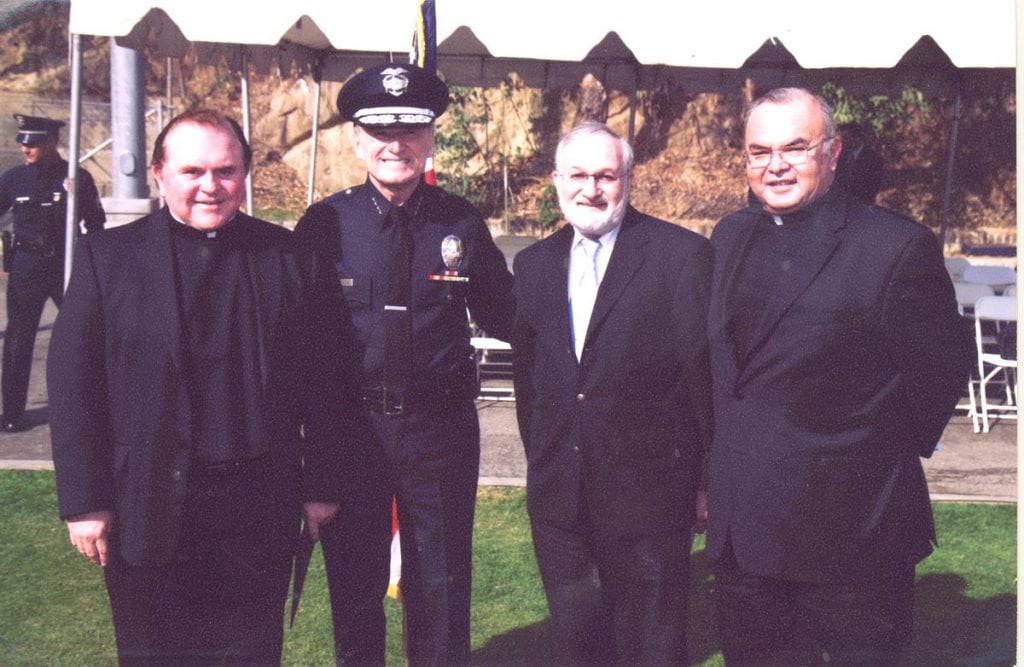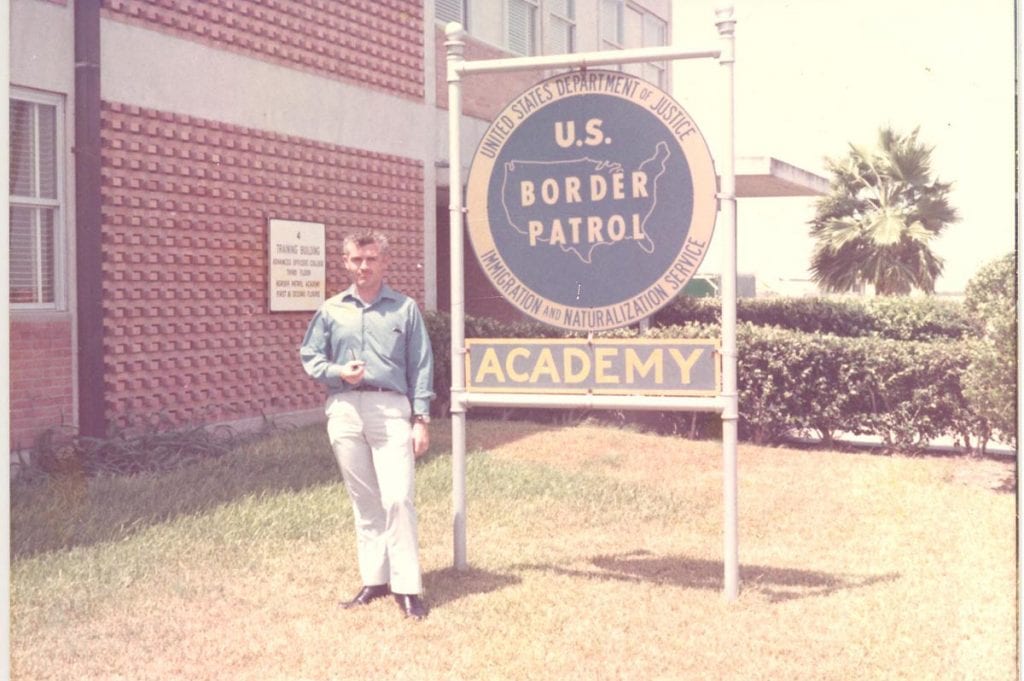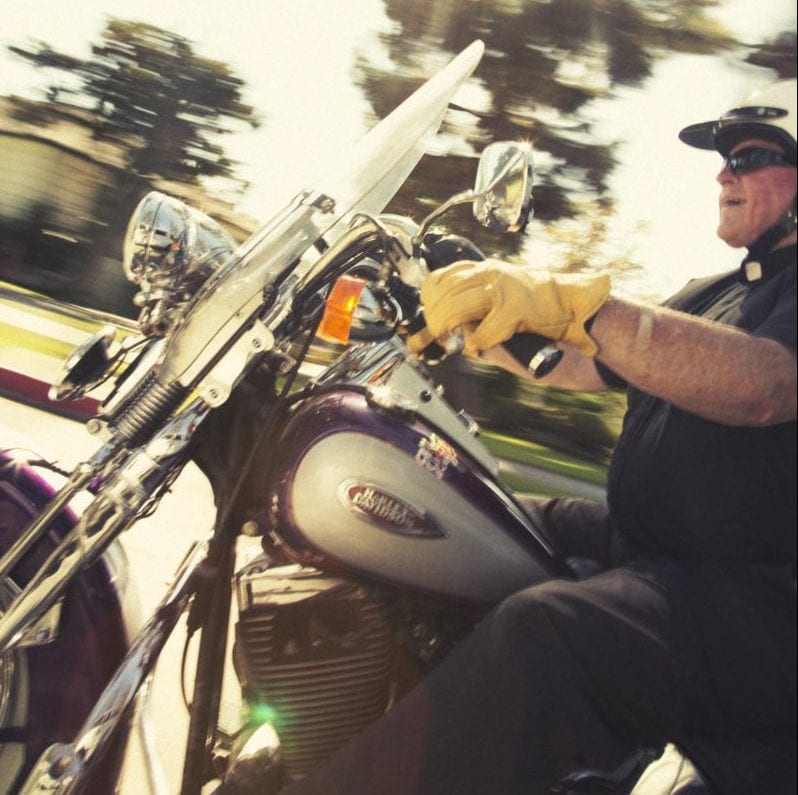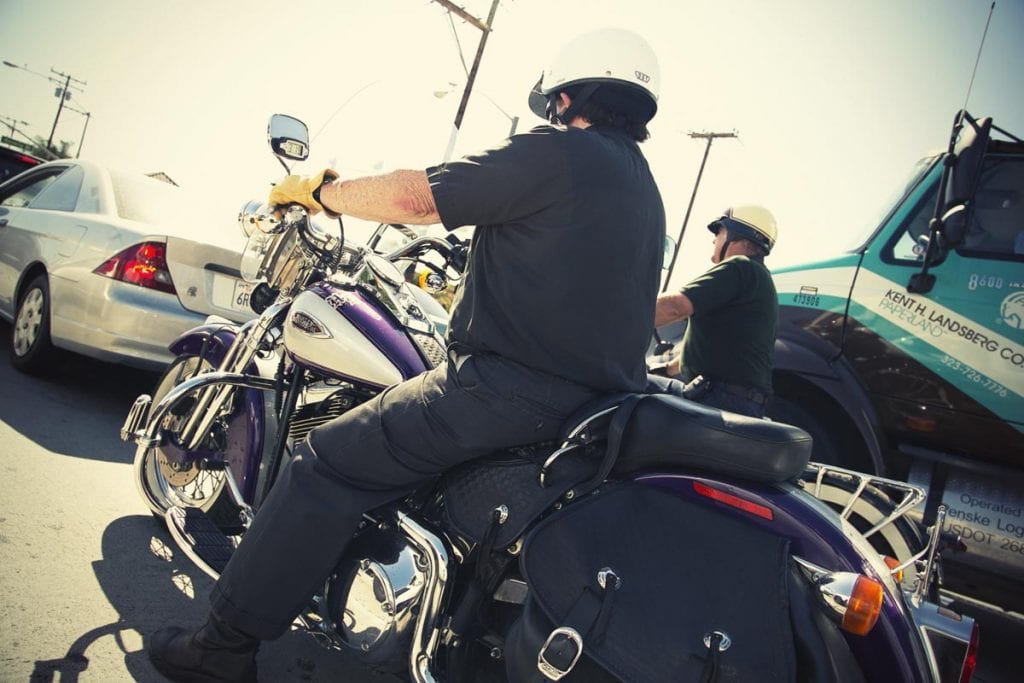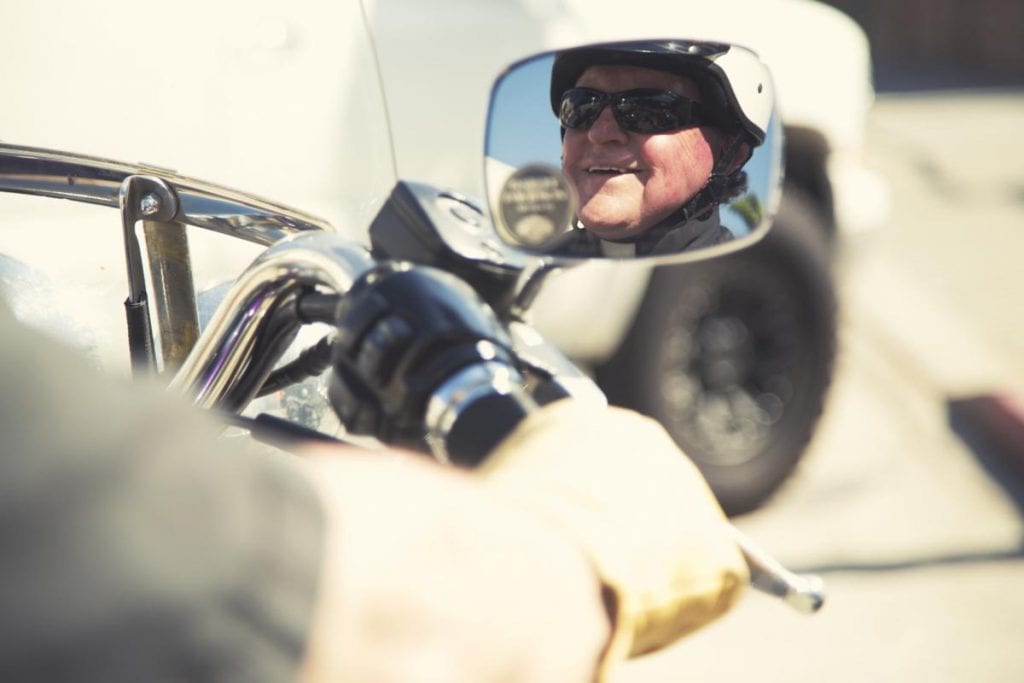Finding inner peace, strength, and a unique ministry: Rev. Francis J. Hicks ’63 leaves career, alcohol behind
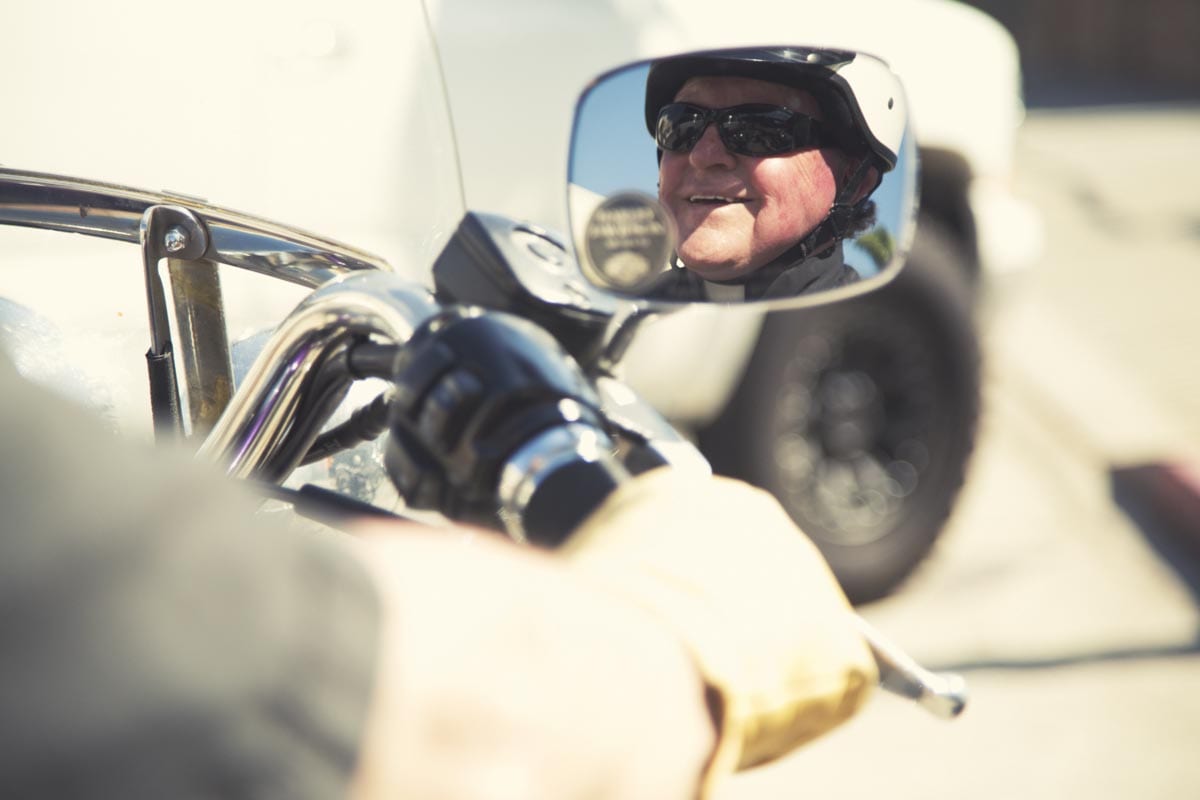
By Diane M. Sterrett
The surprising twists and turns of his life’s journey resemble the trails he rides in the hills of Los Angeles on one of his nine Harley-Davidsons.
His first career took him from Thailand to Texas, then Los Angeles to Laos, and back to Los Angeles. His roles evolved from gun-wielding INS agent to blood-giving priest — ordained at age 58. And, his relationship with God swung from devout Irish-Catholic child, to agnostic adult, to compassionate priest.
Meet the very candid Rev. Francis J. Hicks ’63, or “Father Frank,” a recovering alcoholic who’s the pastor of a large, multicultural parish in Los Angeles, a chaplain in the Los Angeles Police Department, a biker, and an unabashedly proud and fulfilled individual.
“I had a career that I enjoyed, but I thrive with my vocation,” said Father Frank. “I am totally committed to my ministry. I’m doing what I think I’m called to do. I’m interacting with people who are in need.”
Sometimes that ministry takes place from the seat of a motorcycle. All of his adult life, Father Frank has collected Harley-Davidsons — he also owns a fire engine-red 1951 British MGTD Mark II convertible — using them as both a diversion and a tool.
He rides with current and retired police officers around the hills of L.A. and on weekend trips to San Luis Obispo and Death Valley.
“You can talk to (police) at the station, but they’re not going to share the same things they would when they’re with you on a ride for three or four days,” said Father Frank. “They develop a familiarity that makes it easy for them to talk to me.”
Father Frank began his career with the Peace Corps after graduating from Providence College with a bachelor’s degree in political science. He spent four years in rural Thailand, working on community development. It was there his love for motorcycles began with a Honda that carried him to remote areas and through rice paddies.
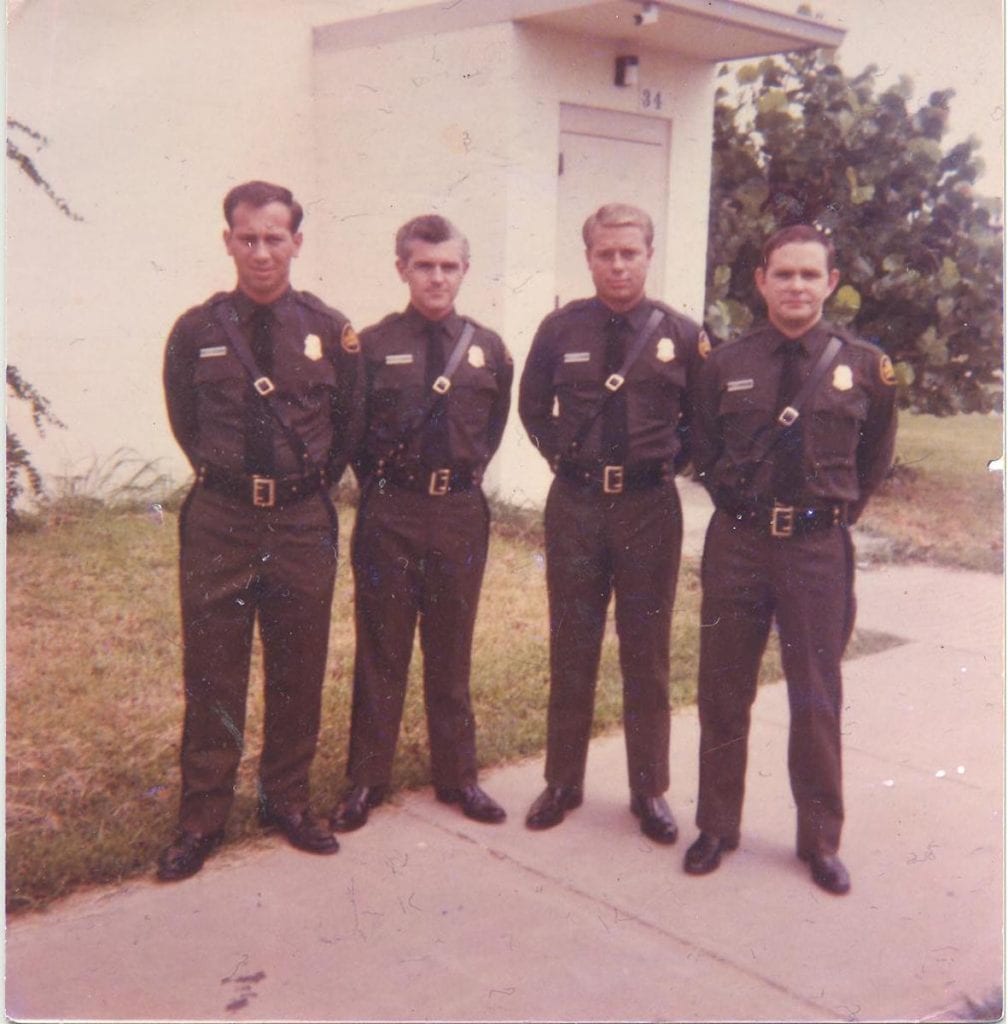
Upon returning to the U.S., he joined the Department of Justice’s Immigration and Naturalization Service (INS). He was appointed to the U.S. Border Patrol at Fort Hancock, Texas, where he bought his first motorcycle with his third paycheck. He later transferred to Criminal Investigations in Los Angeles and rose through the ranks over a 23-year career, thanks in part to his ability to speak Thai and Lao.
Later in his career, he was assigned to the U.S. Attorney’s office for Asian organized crime, working with several other agencies. His primary thrust was the Thai community and Asian drug smuggling.
“I enjoyed the challenge: enforcing the law, making cases, going to trial, being a witness, things of that sort,” he said.
A revelation
But in 1989, Father Frank came to the realization that he no longer had control over his consumption of alcohol.
“Here I was interviewing people suspected of being on duty under the influence of alcohol, and I wasn’t too many steps from them,” he said. “I came to the conclusion I just could not stop. There seemed to be a kind of divine intervention.”
He came back to Rhode Island and checked into an alcohol treatment center. He was introduced to Alcoholics Anonymous (AA) and spent a month in outpatient treatment.
At the time he was “somewhat agnostic.”
“It was out of desperation I turned back to the God of my understanding, the God of Isaac, Abraham, and Jacob. Through AA, I found that I did not have an adversarial God. I had an ally,” he explained.
“So often growing up in a 1940s, Irish-Catholic, New England household, God was used adversarially. You know: ‘You do this, he’s going to punish you.’ Compassion was not one of the strong suits. I found a loving, supportive God, and that’s the God I’ve carried into my ministry. I found out I could say to a person, ‘I’ve walked in your shoes and you’ve walked in mine, so let’s walk together.’”
Father Frank attributes his vocation directly to becoming sober.
“I was enjoying my sobriety, and I had this sense that came to me, ‘If you think you have it good now, do I have something planned for you.’ It was as subtle as that. I had this sense God had something better for me to do,” he said.
With three years left until retirement from the INS, Father Frank knew he had to make a choice about his life. He prayed on his calling and discussed it with his parish priest, a Benedictine. He retired just shy of his 52nd birthday and spent a year of discernment at St. Gregory’s Benedictine Abbey in Shawnee, Okla.
“I had the intention of remaining in the Benedictine community, but I discerned that my vocation was calling me more toward being a diocesan priest,” he recalled. “I needed to be active in the community, dealing with people, dealing with their problems on a regular basis and sharing whatever talents I had.”
Returning to Los Angeles, he began to doubt himself until he spoke with Grace McGeehy, a member of his parish council. She asked about his plans, and he told her he was considering applying to St. John’s Seminary at Camarillo.
“I knew immediately, then and there, that is exactly what I’m supposed to do,” said Father Frank. “All the apprehension, all the absurdity, all the self-doubt, all that just seemed to evaporate. I applied, and the rest is history. I’ve never looked back.”
Many years later, he discovered McGeehy’s prayer life was dedicated to praying for vocations.
Pouring his energy into his ministry
Father Frank was ordained in 2000 and assigned to Holy Trinity Parish in San Pedro. He quickly accepted many assignments within the Archdiocese of Los Angeles, which is by far the largest archdiocese in the U.S. with more than 5 million Catholics.
Life is more fulfilling now, and he calls his ministry “the ultimate.”
As pastor of St. Basil Catholic Church in Los Angeles, Father Frank ministers to 5,500 families — a culturally rich and diverse group of Filipinos, Koreans, and Central American Hispanics.
Baptisms, marriages, and Masses are said in Spanish, Korean, and English, and it’s a community centered on outreach. It’s not unusual to have 45 adult baptisms at once, and the record is 125.
He also ministers to priests throughout the archdiocese who have substance abuse issues. He conducts AA meetings and helps them through the transition he has made.
“I get up in the morning and dress in my clerics, and that’s it for the day — that’s my uniform, and that’s who I am,” he said. “I am a 24/7 Catholic priest working in my parish, and by extension, outside my parish. I just gave my 87th unit of blood platelets at City of Hope [a cancer research hospital]. Every time I go, I go with Roman collar on and they know who and what I am. We get enough bad publicity; people should see there are those of us out there doing the best we can.”
Among Father Frank’s favorite roles is that of director of the Cardinal McIntyre Fund for Charity, which raises money for basic needs of the poor — food, electricity, heat, burying the dead. It doesn’t matter if you’re a parishioner.
“My idea is, Jesus Christ wouldn’t have said, ‘You don’t come to my church.’ I don’t think so! We cover everyone we possibly can,” he said.
Because of his law enforcement background, Father Frank was asked by the archdiocese to become chaplain for the Los Angeles police shortly after his ordination. It’s an aspect of his ministry that enables him to give back to officers who put their lives on the line.
“My role is to walk with them, to advise them when they want to be advised, to lift them up, to pray for them,” he said. “Any time they have a rally for a fallen officer, I do the invocation and then I ride with them. They appreciate it, and you get a much closer relationship. It helps develop a rapport and enhances my ministry to them.”
He also continues his decades-long association with the Victor McAllen Motorcycle Stunt and Drill Team, which raises money for charity. He is now the chaplain and performs with other members on occasion.
Father Frank’s lifelong dedication to giving back is also demonstrated by his generosity to PC.
“The Lord has been very good to me financially,” he said, so he has established a scholarship in his parents’ name and included the College in his estate plan.
He credits PC with giving him a logical, philosophical foundation and analytical skills that were not only helpful in his career, but in his life choices.
“Providence College,” he said, “gave me the ability to listen, to be true to what I was being exposed to and not turn away from it, but embrace it and find out exactly where I was called to be.”
Diane M. Sterrett of Tiverton, R.I., is a senior contributor for Providence College Magazine.
Father Frank in the community
- Certified chaplain to the Federal Correctional Center, Terminal Island, Calif.
- Member, Chaplains Advisory Board for the Chief of Police
- Member, Benevolent and Protective Order of Elks
- Board Member, McIntyre House Recovery Center
- Member, Los Angeles Archdiocesan Clergy Personnel Board (2005-08, 2011-12)
- Board Member and Vice President, FedOne Federal Credit Union
- Knight of the Holy Sepulcher of Jerusalem





